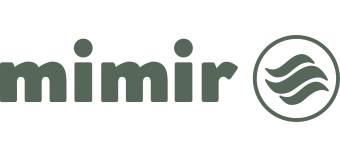
Vacatures geplaatst door Dutch Institute for Fundamental Energy Research
Mimir verzorgt het geautomatiseerde beheer van vacatures op vacaturebanken voor Dutch Institute for Fundamental Energy Research.
Laatste vacatures
Systeem & Netwerk beheerder
Taken en verantwoordelijkheden
Als Systeem- en Netwerkbeheerder binnen onze boeiende wereld van wetenschappelijk onderzoek speel je een onmisbare rol in het optimaliseren, versterken en beveiligen van onze ICT omgeving, waarbij zelfstandigheid, verantwoordelijkheid en samenwerken centraal staan. Je werkt aan ICT-projecten welke je veelal zelf initieert en ontwerpt. Je zet je kennis van Microsoft, Linux, Netwerk, Firewall, Storage en meer in om complexe problemen te prioriteren, analyseren en oplossen. Jouw scherpe inzicht en technische expertise zorgen ervoor dat je snel kunt diagnosticeren en de juiste oplossingen biedt. Met een onwrikbare focus op het verbeteren van onze ICT-dienstverlening, draag je dagelijks bij aan het verhogen van de kwaliteit en veiligheid van onze infrastructuur. Je levert een belangrijke bijdrage aan de groei en optimalisatie van onze systemen en diensten, terwijl je zorgt voor een naadloze werking en robuuste beveiliging. Dit is een uitdaging die continu evolueert en waarin jij jouw passie voor ICT volledig kunt benutten.
Je belangrijkste werkzaamheden zullen zijn:
- Beheren, beveiligen en uitvoeren van migraties van o.a. storage, switches, firewalls, accesspoint, SURF diensten, Linux en Windows servers;
- Behoeften van wetenschappers met hen bespreken en deze omzetten in een plan van aanpak voor de ICT afdeling;
- Elke week is er teamoverleg over de lopende incidenten en projecten;
- Je bent actief in SURF groepen als SCIPR, SCIRT en wil je deze kennis delen met je collega’s, ook zul je deel uit gaan maken van ons interne CERT;
- Ondersteunen van collega’s bij complexe incidenten.
De ICT afdeling bestaat momenteel uit een team van: twee eerstelijns medewerkers, één applicatiebeheerder, één Linux beheerder, één security specialist, één ICT architect, één ISO en de ICT manager. Hierin zul je een centrale rol spelen waarin je regelmatig met je collega’s zult sparren.
Ons IT service management platform is Topdesk waarin wij op basis van ITIL werken. In het kader van ISO27001 zijn we ver gevorderd met het ISMS (Information Security Management System) en het kennisveiligheidsniveau.
AcademicTransfer
0 sollicitaties
0 views
30-06-2025 Dutch Institute for Fundamental Energy Research
Systeem & Netwerk beheerder
Taken en verantwoordelijkheden
Als Systeem- en Netwerkbeheerder binnen onze boeiende wereld van wetenschappelijk onderzoek speel je een onmisbare rol in het optimaliseren, versterken en beveiligen van onze ICT omgeving, waarbij zelfstandigheid, verantwoordelijkheid en samenwerken centraal staan. Je werkt aan ICT-projecten welke je veelal zelf initieert en ontwerpt. Je zet je kennis van Microsoft, Linux, Netwerk, Firewall, Storage en meer in om complexe problemen te prioriteren, analyseren en oplossen. Jouw scherpe inzicht en technische expertise zorgen ervoor dat je snel kunt diagnosticeren en de juiste oplossingen biedt. Met een onwrikbare focus op het verbeteren van onze ICT-dienstverlening, draag je dagelijks bij aan het verhogen van de kwaliteit en veiligheid van onze infrastructuur. Je levert een belangrijke bijdrage aan de groei en optimalisatie van onze systemen en diensten, terwijl je zorgt voor een naadloze werking en robuuste beveiliging. Dit is een uitdaging die continu evolueert en waarin jij jouw passie voor ICT volledig kunt benutten.
Je belangrijkste werkzaamheden zullen zijn:
- Beheren, beveiligen en uitvoeren van migraties van o.a. storage, switches, firewalls, accesspoint, SURF diensten, Linux en Windows servers;
- Behoeften van wetenschappers met hen bespreken en deze omzetten in een plan van aanpak voor de ICT afdeling;
- Elke week is er teamoverleg over de lopende incidenten en projecten;
- Je bent actief in SURF groepen als SCIPR, SCIRT en wil je deze kennis delen met je collega’s, ook zul je deel uit gaan maken van ons interne CERT;
- Ondersteunen van collega’s bij complexe incidenten.
De ICT afdeling bestaat momenteel uit een team van: twee eerstelijns medewerkers, één applicatiebeheerder, één Linux beheerder, één security specialist, één ICT architect, één ISO en de ICT manager. Hierin zul je een centrale rol spelen waarin je regelmatig met je collega’s zult sparren.
Ons IT service management platform is Topdesk waarin wij op basis van ITIL werken. In het kader van ISO27001 zijn we ver gevorderd met het ISMS (Information Security Management System) en het kennisveiligheidsniveau.
AcademicTransfer
0 sollicitaties
0 views
30-06-2025 Dutch Institute for Fundamental Energy Research
Postdoc Energy Researcher (QCF Fellowship program)
DIFFER offers a two-year postdoctoral research position enabled through the Quadrature Climate Fund (QCF) fellowship program. The QCF Fellowship is a unique, first-of-a-kind position where a talented individual will work freely on their own energy research project. The research project, is positioned in the Plasma Solar Fuels Devices group of the Chemical Energy department, and will be on the topic of plasma-driven chemical conversion of simple molecules such as CO2, N2/O2 and CH4, utilizing the state-of-the-art plasma facilities present in the group, such as microwave generated plasma’s and plasma-activated electrochemical reactors. In addition to the research, the Fellow will be asked to collaborate with QCF’s internal science team, supporting our evidence-based approach to climate philanthropy. This could involve giving running a research sprint on a topic related to the Fellow’s area of expertise, presenting results to the QCF team, pointers towards interesting scientific developments, and participating in working groups organised to design and test QCF’s strategies.
Responsibilities
- Use advanced plasma diagnostics to characterize the plasma chemical conversion process and to develop understanding of the complex mechanism at play.
- (Co-)supervise students at bachelor and master level.
- Disseminate research findings through publications, presentations, and stakeholder engagement activities.
AcademicTransfer
11 sollicitaties
0 views
23-05-2025 Dutch Institute for Fundamental Energy Research
PhD researcher Integrated modeling in tokamak fusion plasma core and edge
DIFFER is seeking to hire a PhD researcher (4 years) to work with the Integrated Modeling group at the institute in support of various in-house activities as well as in collaboration with external partners (EUROfusion, ITER, and other partners in fusion). Foreseen is to conduct dynamic integrated plasma core & edge simulations and the application of the JINTRAC flight simulator tool. JINTRAC consists a set of integrated code modules, a high-fidelity simulation suite, that is required to be validated for full tungsten (W) reactors like ITER.
A consistent JINTRAC model should be worked out and tested against present day devices with metal plasma-facing components (AUG, JET, etc). A “predict-first” attempt for W transport for the full-W wall machine JT60-SA (Japan) is also foreseen to challenge the newly developed model. In addition, and in support of the foreseen work, the neural network version of SOLPS-ITER, namely SOLPS-NN, is to be exploited as part of JINTRAC toolset to speed up full device higher-fidelity modelling activities. SOLPS-NN shall also be incorporated into the MUSCLE3 environment that will be used for the pulse design tool at ITER. A possible coupling of SOLPS-NN to TORAX code is also foreseen to exploit the possibility of a fully differential global model (towards a digital twin). The work on MUSCLE3 and TORAX will be pursued in collaboration with our partners Ignition Computing (Eindhoven) and Google DeepMind (London).
AcademicTransfer
5 sollicitaties
0 views
06-05-2025 Dutch Institute for Fundamental Energy Research
Group Leader in Automated Materials Synthesis and Characterization
The new group will capitalize on DIFFER’s state-of-the-art infrastructure, including high-end materials synthesis facilities such as the VSParticle Nanoparticle Printer (VSP) and Pulsed Laser Deposition (PLD), as well as comprehensive material characterization tools (XRD, SEM, TEM, XRF, XPS, etc.), to accelerate the discovery and optimization of materials for sustainable energy applications, essentially including electro-, thermo-, or plasma-driven energy carrier conversion.
The successful candidate will establish an internationally recognized research group dedicated to automated materials synthesis and characterization for sustainable energy. You will develop and lead a high-impact experimental program that exploits and expands DIFFER’s research facilities for rapid material fabrication and analysis. The Group Leader is expected to collaborate with colleagues to ensure that insights from data-driven techniques and lab automation are successfully implemented in optimization of experimental workflows for materials synthesis and characterization. These collaborative efforts will increase DIFFER’s capability to discover advanced materials for energy, aligning with our institute’s strategy.
We seek an exceptional experimental scientist with deep expertise in the synthesis, processing, and characterization of energy materials. The ideal candidate has a strong background in areas such as heterogeneous catalysis, nanomaterials, thin films, or other advanced materials, with extensive experience in high-throughput or combinatorial experimentation and advanced materials characterization techniques.
Responsibilities:
- Lead an innovative research program in automated materials synthesis and characterization, developing new methodologies to rapidly create and evaluate materials for energy applications.
- Exploit and further develop DIFFER's materials synthesis platforms (VSP and PLD) to enable high-throughput screening and optimization of catalysts, electrodes, and other energy materials.
- Use advanced characterization methodologies (XRD, SEM, TEM, XRF, XPS, etc.) and contribute to the design of new characterization workflows to achieve a comprehensive understanding of material structure–performance relationships.
- Apply insights from AI-driven discovery strategies developed by colleagues to design experiments and enhance the efficiency of the materials discovery process.
- Collaborate closely with lab automation scientists and engineers to integrate experimental results from synthesis and characterization techniques with real-time data analysis and adaptive planning, all within the self-driving lab framework.
- Secure external research funding through competitive grants and industrial partnerships to expand the capabilities and impact of the group’s research.
- Supervise PhD students, postdoctoral researchers, and engineers, promoting scientific excellence and career development.
- Disseminate research findings through publications, presentations, and stakeholder engagement activities.
We seek an exceptional experimental scientist with deep expertise in the synthesis, processing, and characterization of energy materials. The ideal candidate has a strong background in areas such as heterogeneous catalysis, nanomaterials, thin films, or other advanced materials, with extensive experience in high-throughput or combinatorial experimentation and advanced materials characterization techniques.
AcademicTransfer
27 sollicitaties
0 views
11-04-2025 Dutch Institute for Fundamental Energy Research


